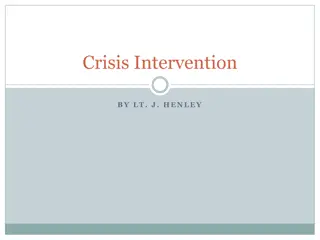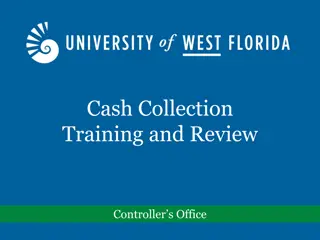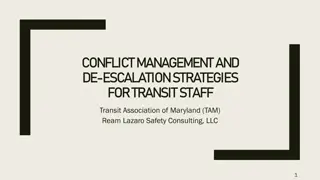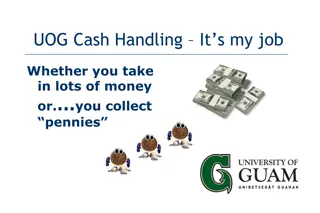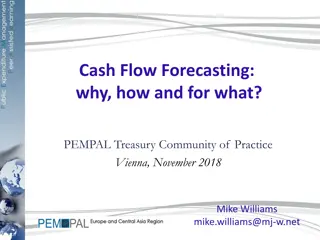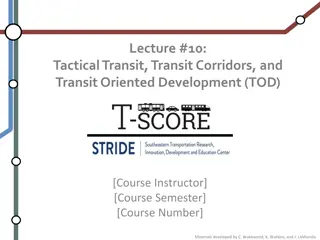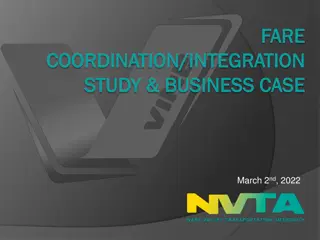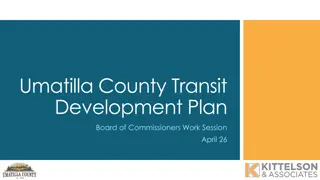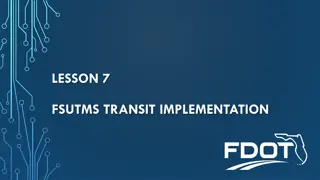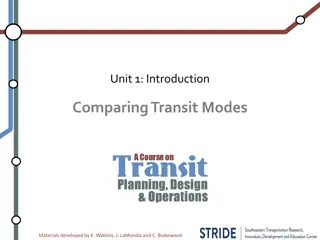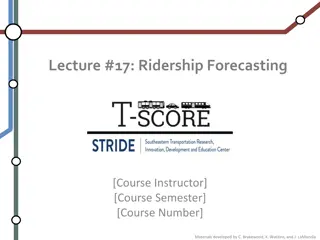Cash-in-transit (CIT) Security Overview
The content delves into the regulations, procedures, and cycle of Cash-in-transit (CIT) security, covering aspects such as risk assessment, execution, transport, equipment, and more. It explores the specific rules and requirements for CIT security staff, including training and equipment standards, as well as the common framework of reference for languages. Additionally, it discusses the definition and phases of CIT security services, emphasizing the meticulous process of transferring cash securely between locations.
Download Presentation

Please find below an Image/Link to download the presentation.
The content on the website is provided AS IS for your information and personal use only. It may not be sold, licensed, or shared on other websites without obtaining consent from the author.If you encounter any issues during the download, it is possible that the publisher has removed the file from their server.
You are allowed to download the files provided on this website for personal or commercial use, subject to the condition that they are used lawfully. All files are the property of their respective owners.
The content on the website is provided AS IS for your information and personal use only. It may not be sold, licensed, or shared on other websites without obtaining consent from the author.
E N D
Presentation Transcript
Influences on American Democracy Influences on American Democracy
The Age of Enlightenment refers to the time period from the mid-1600s to about 1800 also known as the Age of Reason. During this time period, people began to place emphasis on reason and logic. People sought to reform society and advance knowledge by taking an intellectual look at the fields of science, politics, and social theories. Individualism deserves dignity, and is born with rights, looks to be the driving force behind the Age of Enlightenment. Rationalism through reason and logic, was also prevalent during this time period. Individualism, or the idea that each individual has value, Rationalism, the idea that humans should find truth
John Locke Charles Jean Thomas Hobbes Voltaire John Locke Charles- -Louis Montesquieu Jean- -Jacques Rousseau Thomas Hobbes Voltaire Louis Montesquieu Jacques Rousseau
Locke was an important political philosopher of the Enlightenment. He believed that a government was legitimate only if it had received the consent of the people it ruled. He also believed the government should protect the natural rights of citizens and that all individuals should be equal under the law. This principle is seen in the Declaration of Independence. The colonist knew this principle by the name p popular opular sovereignty . sovereignty .
Montesquieu was a French political thinker known for his ideas regarding the separation of powers in government. In his work entitled The Spirit of the Laws, Montesquieu argued against one large government structure controlling every aspect of law and instead proposed the idea of separate branches. separate branches. LOOKS FAMILIAR!
Rousseau was a Swiss philosopher, writer, and Enlightenment thinker who s philosophy was influenced much by the French Revolution. Known as one of the great thinkers of Enlightenment, he saw how humans were able to establish a new sense of logic and reason. Rousseau argued that every person was capable of such thinking and therefore could choose his or her own destiny. In his famous work, Reveries of a Solitary Walker, we see this idea expressed.
Hobbes was said to be the first to develop social contract theory. He believed strongly that people naturally give up certain rights to a government in order to maintain social order. His thought was without government structure, people would fight each other and would never know peace. Hobbes states that "The natural state of men, before they were joined in society, was a war, and not simply, but a war of all against all." The quote above caused Hobbes to believed that the only cure of such a war was the creation of a strong government with almost absolute power. He also believed that people would freely give up their rights of governing themselves in order to live in peace.
Voltaire was a French writer. Just as his Enlightenment counter- parts did, Voltaire believed in each individual's civil liberties speech religion. civil liberties, including free speech and freedom of religion. free freedom of Could these Enlightenment beliefs be the origin of the Bill of Rights?
The English Bill of Rights The Mayflower Compact Two Treaties of Government The Scientific Revolution The American Revolution The French Revolution The Declaration of Independence
The philosophies of Ancient Greece and Rome Massachusetts Body of Liberties Suffolk Resolves
Emphasis on republicanism, liberty, and the rights of citizens Ideas can be seen in the Declaration of Independence and the Bill of Rights
Written in 1641 Set rules on how colonial government should treat citizens and how citizens should treat each other Influential to leaders of Revolution in deciding how to set up government
Declared in 1774 in Suffolk County, Massachusetts A response to Intolerable Acts Boycott/Refusal to use British goods Refusal to comply with punishment against Massachusetts after the Boston Tea Party Support of a government in Massachusetts separate from the royal government Support of the colonist raising a militia independent from British troops
Common Sense John Locke s Second Treatise
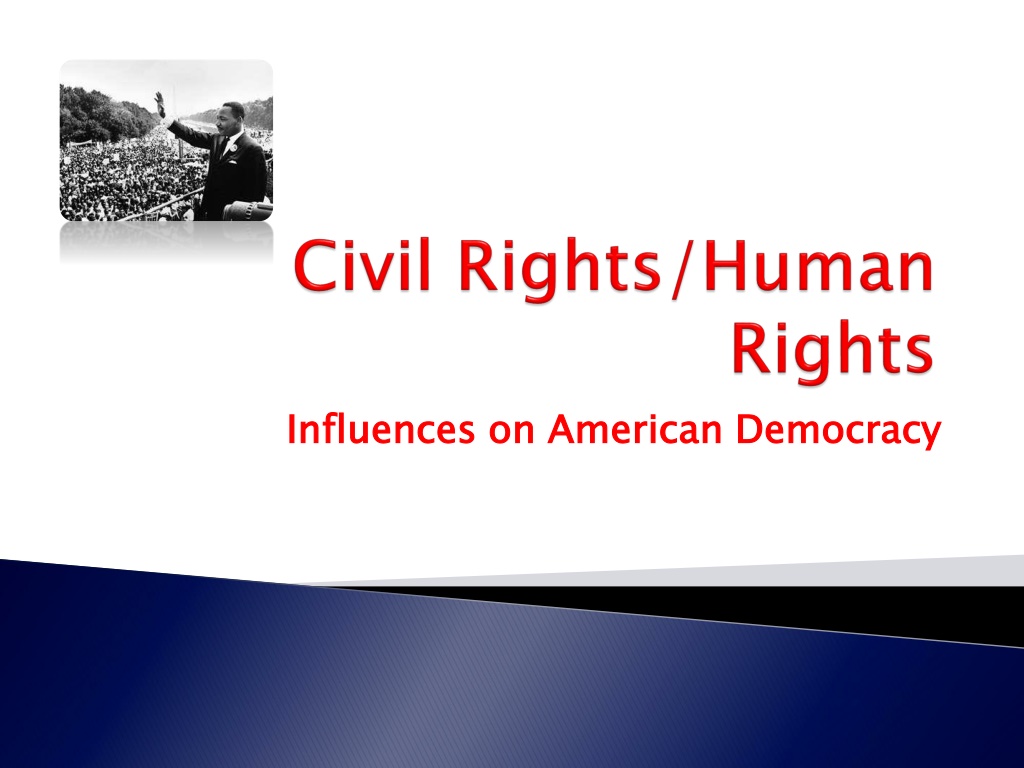
 undefined
undefined








